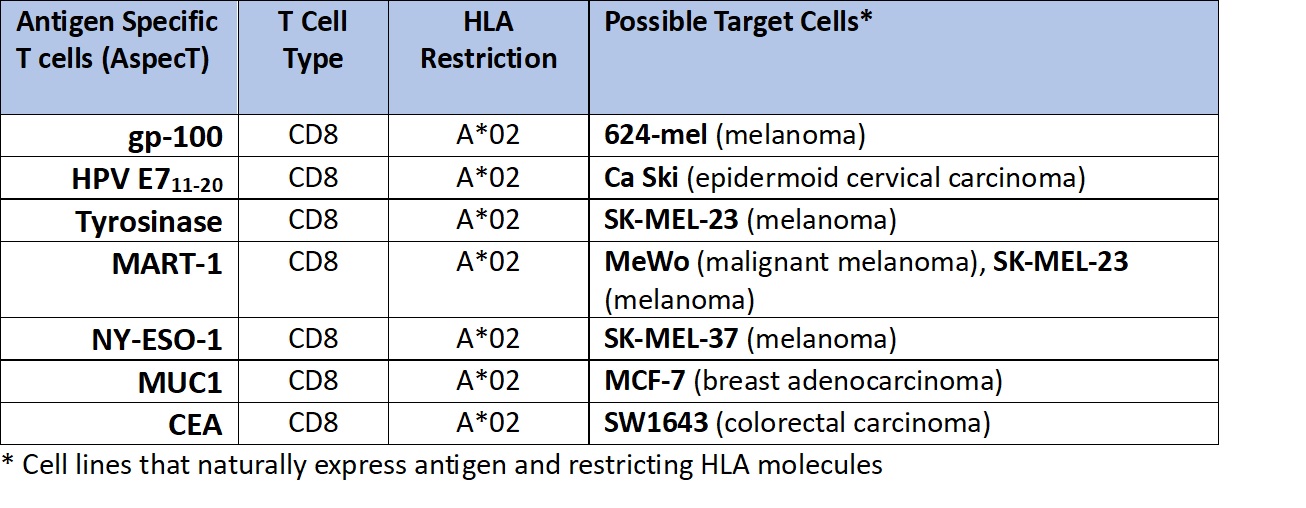Target Cells for Assays with Antigen-Specific T Cells (ASpecT)
Antigen-specific T cells (ASpecTs) are a major player in the immune response in various diseases including cancer and pathogenic infections, as well as mediators in inflammation and autoimmunity. Ignyte Bio offers assay-ready ASpecT products for your research with the following characteristics:
- Typically generated using multiple in vitro stimulations with peptide antigens
- Not immortalized or genetically modified, so they more closely mimic physiological T cells
- Specificity analyzed using the cognate peptide/MHC tetramer binding
- Functional activity is demonstrated by interferon-gamma (IFN-γ) and cytotoxicity assays for CD8 products, or antigen-specific proliferation assay for CD4 product
- Active and ready for use in an assay directly after thawing
ASpecTs have historically been important in antigen discovery studies. They are also a useful tool as effectors in various cell-based assays that assess
- antigen-presentation (e.g., potency of a vaccine construct)
- the effect of various factors that modulate a T cell response {e.g., cytokines, agonists and antagonists for both co-stimulatory and check-point molecules and others)
We have often been asked about target cells that can be used in assays with ASpecT as effector cells. Suitable target cells are cells that express the appropriate HLA restriction molecules. Autologous cells (e.g., monocytes, B-LCLs), when available, are good choices for use as target cells when preincubated with the antigenic or control peptide. Most of Ignyte Bio’s current CD8+ ASpecT products are restricted by HLA-A*02. So, as an alternative to autologous target cells, HLA-A*02+ allogeneic B-LCLs +/- antigenic or control peptide can also be used as target cells.
HLA-compatible B-LCLs or other immortalized cells can also be genetically altered to express the antigen of interest and used as target cells. Last but not least, there are commercially available tumor cell lines with known expression of the appropriate HLA-restriction molecules and relevant antigens, that can be used as a “natural” target cells for ASpecT assays (table 1)
Table 1. Possible Target Cells in ASpecT Assays: Commercially Available Tumor Cells Lines

